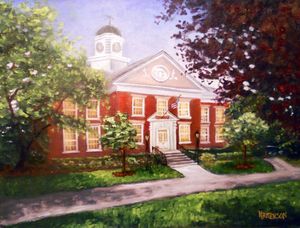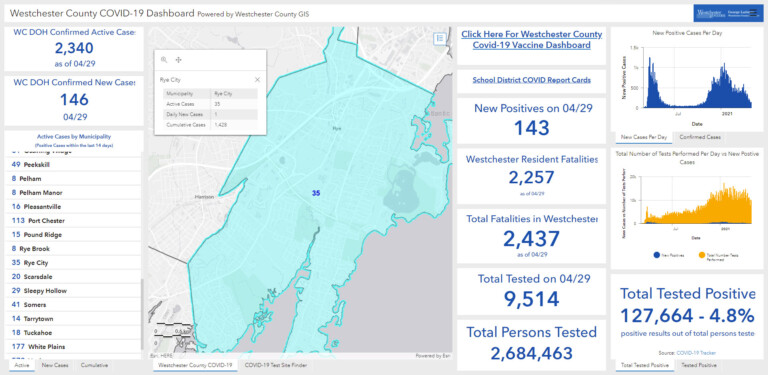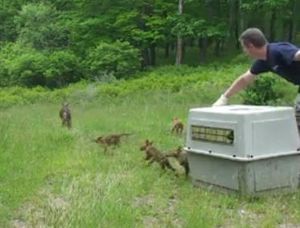Expect Sewer Repair Work Across the City for All 2024
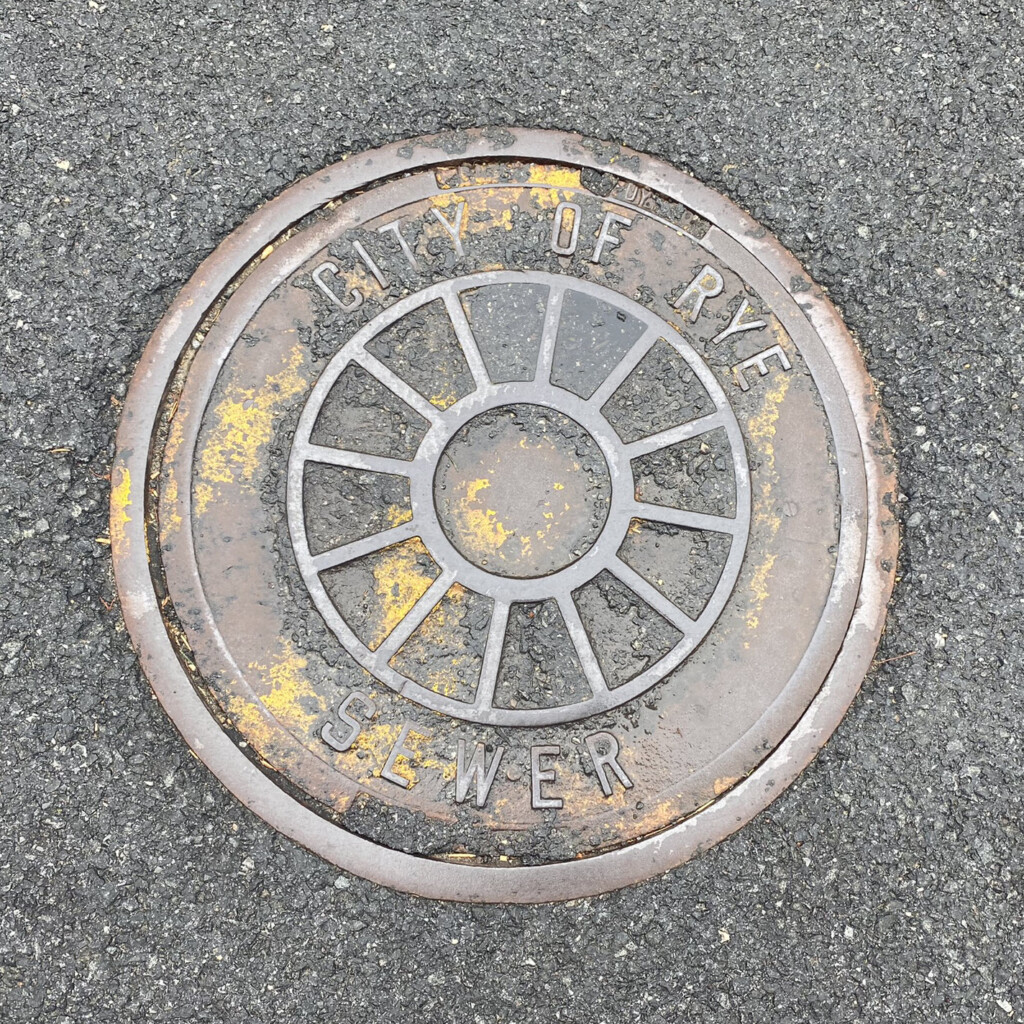
The City of Rye announced on Tuesday sewer and manhole rehabilitation and repair work that will impact neighborhoods throughout the City.
As part of the Consent Order with the New York State Department of Environmental Conservation and the federal Stipulated Settlement, the City agreed to complete a series of activities by the end of 2024. Rye is one of 14 municipalities in the region to be subject to requirements of a Stipulated Settlement. The settlement stems from the Save the Sound lawsuit. Save the Sound sued Rye and other local municipalities back in 2015 over raw sewage that was leaking into waterways and down into the Long Island Sound.
“We are very pleased that Rye is moving forward with these much-needed repairs,” said Roger Reynolds, senior legal director for Save the Sound. “This will result in reduced sewage pollution, which means a cleaner Long Island Sound for swimming and fishing.”
To date, the City has invested over $8 million toward critical sewer infrastructure upgrades. A significant portion of this expense was funded through a 2018 $3.9 million grant award under the New York State Department of Environmental Conservation Water Quality Improvement Program (WQIP). The first phase of work included sewer and pump stations repairs identified in a 2018 Sewer System Evaluation Survey (SSES) (Central Ave. Pump Station, Brevoort Ln. Pump Station, Midland Ave. Sewer, Locust Ave Sewer.) Last year, the City was awarded an additional $10 million under WQIP to complete an additional $13.3 million of sewer infrastructure improvements. This was the largest State-wide award at the time and was supported by Assemblyman Otis and Senator Mayer.
With this $10 million of funding, the City will further upgrade its sanitary sewer system by completing spot repairs and replacements, installing approximately 22,000 linear feet of pipe lining, and repairing hundreds of manhole defects City wide. This project will reduce the amount of groundwater entering the sewer system and further satisfy the City’s existing Consent Order.
2024 Sewer Improvements
Beginning in December of 2023, the Rye City Council awarded four contracts to complete sewer and manhole repair work totaling over $13.3 million. This includes extensive sewer manhole rehabilitation work, sewer lining projects, and sewer main spot repairs throughout Rye. The map depicts the repair project areas across the City. This work is scheduled to be completed by the end of December of this year.
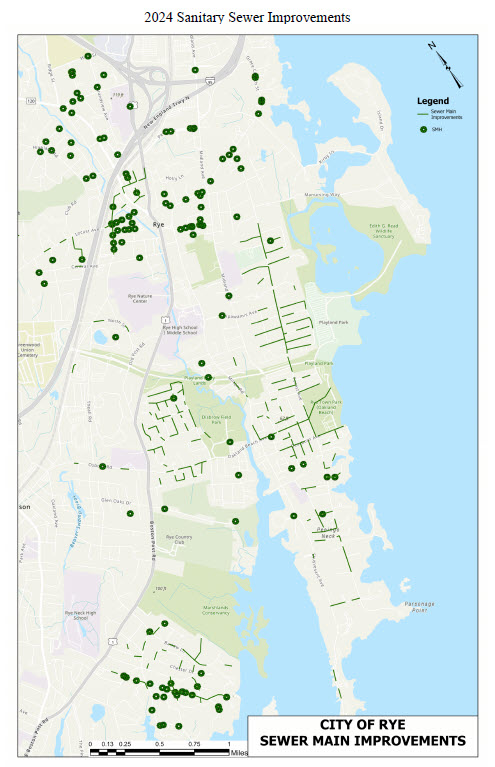
Sewer Lateral Inspection Law
In addition to the designated sewer infrastructure work, the City has adopted two important laws which to ensure its systems are functioning properly and in an environmentally effective manner. In May of 2021, the Rye City Council adopted a law requiring that property owners obtain a Discharge Compliance Certificate (“DCC”) from the City Building Department prior to the transfer of title of any real property in the City. Under the new law, property owners are required to submit to the Building Department a certification from a licensed plumber that the lateral has been inspected and is free from any sources of inflow or infiltration.
Enforcement of this law began on January 1, 2022. A total of 473 Discharge Compliance Certificates have been processed since the law was enacted.
Fats, Oils, and Grease Abatement Law
In November of 2022, the Rye City Council adopted a local law to aid in the prevention of sanitary sewer blockages, backups and obstructions from contributions and accumulation of fats, oils, and grease into the sanitary sewer system from industrial or commercial establishments, particularly food preparation and serving facilities.
City staff focused on education and outreach in advance of enforcement and identified a total of 63 grease generating properties under the City’s jurisdiction that are subject to installation of grease traps as well as storage and disposal regulations under the law. The compliance inspections for 2024 are complete.
Environmental Benefit Bioretention Project

A final aspect of current work includes the completion of certain Environmental Benefit Projects (EBP). The first of these was completed in conjunction with the recent Rye Rec Park projects. The new bioretention basin is designed to treat stormwater runoff from adjacent areas. This project was part of a larger series of projects aimed at revitalizing Rye Recreation Park.
Some of these improvements include a new pavilion with a clear roof to allow for natural light, new walkways around the park and connections to Midland Avenue and other amenities to promote additional neighborhood walkability, new lawn areas for passive and active use, new native shrub, perennial, and tree plantings and what the City says is one of the largest pollinator gardens in the region.

